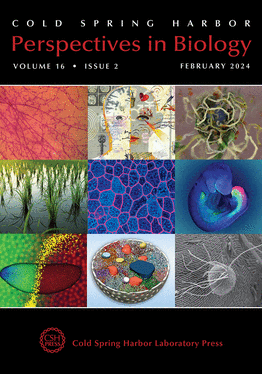利基理论是研究自适应辐射的一种未充分利用的资源
IF 6.9
2区 生物学
Q1 CELL BIOLOGY
引用次数: 0
摘要
生物学家经常被两个对立的问题所困扰:为什么有这么多物种,为什么没有更多物种?虽然这些问题适用于现有物种的维持,但它们同样适用于新物种的形成。物种在其生态位方面的专业化程度越高,新物种形成并在群落中共存的机会就越多。是什么设定了特化的上限,从而设定了物种分化的上限?我们认为,麦克阿瑟的物种包装和资源最小化理论可能会给出答案。具体来说,资源和个体都是有限的--随着物种变得越来越特化,每个个体能获得的资源也越来越少。在特定的资源环境中,物种只能在满足基本资源需求的前提下尽可能地特化。我们提出,特化的上限应低于导致种群规模小到随机灭绝的临界值,而且由于新品系出现的时间有先后顺序,这个上限可能很少被接近。本文章由计算机程序翻译,如有差异,请以英文原文为准。
Niche Theory as an Underutilized Resource for the Study of Adaptive Radiations
Biologists are often stuck between two opposing questions: Why are there so many species and why are there not more? Although these questions apply to the maintenance of existing species, they equally apply to the formation of new ones. The more species specialize in terms of their niches, the more opportunities arise for new species to form and coexist in communities. What sets an upper limit to specialization, thus setting an upper limit to speciation? We propose that MacArthur's theories of species packing and resource minimization may hold answers. Specifically, resources and individuals are finite—as species become increasingly specialized, each individual has fewer resources it can access. Species can only be as specialized as is possible in a given resource environment while still meeting basic resource requirements. We propose that the upper limit to specialization lies below the threshold that causes populations to be so small that stochastic extinctions take over, and that this limit is likely rarely approached due to the sequential timing by which new lineages arrive.
求助全文
通过发布文献求助,成功后即可免费获取论文全文。
去求助
来源期刊

Cold Spring Harbor perspectives in biology
CELL BIOLOGY-
CiteScore
15.00
自引率
1.40%
发文量
56
审稿时长
3-8 weeks
期刊介绍:
Cold Spring Harbor Perspectives in Biology offers a comprehensive platform in the molecular life sciences, featuring reviews that span molecular, cell, and developmental biology, genetics, neuroscience, immunology, cancer biology, and molecular pathology. This online publication provides in-depth insights into various topics, making it a valuable resource for those engaged in diverse aspects of biological research.
 求助内容:
求助内容: 应助结果提醒方式:
应助结果提醒方式:


